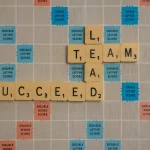What is the most important job you can ever have?
Here are 10 clues:
- There are no qualifications or professional development for this job.
- You don’t apply for it through LinkedIn or Facebook – there are no interviews.
- Its skills are not taught in any school, college or university.
- It doesn’t come with a salary, in fact you’ll have to pay out a small fortune to do it.
- Once you start this job you have it for life – you can never retire.
- No one will congratulate you for doing this job well, but you are sure to be criticised when you get it wrong. Your ‘clients’ may never thank you – they could end up not talking to you.
- You’ll probably start this job with a partner, though ultimately you’re on your own.
- Nothing can prepare you for what will happen to you while doing this job.
- It is the most emotionally exhausting job in the world – you are guaranteed to feel every emotion; joy, happiness, contentment, but also fear, anger and frustration.
- You are not likely to put this job on your CV – though the knowledge you gain while doing it will be immense.
Yes, the job is BEING A PARENT
As the father of five children (aged 23 years to 50 years), I have immense sympathy for the many millions of young adults around the world now deciding not to have any children or at most, one. If I were 23 again I don’t think I’d be as eager to be a parent as I was in the early 1970s. That was over 50 years ago and back then I had one thing protecting me – innocence. There is little innocence around today.
I got married at 21: a callow youth about to embark on his life adventure; little money, no experience, no qualifications of any description, just a lot of determination, optimism and energy. My wife never went to university, either. But we both had jobs and we could afford to buy our own home and start a family. Yes, naïve, but that naivety and innocence turned out to be an asset. It shielded me from worrying too much about what might happen to me, to my marriage, to my kids. In the end it mostly worked out okay. I say mostly because of my five children I can honestly say I only have a really close relationship with three of them. 3 out of 5. Not bad. But not brilliant either.
But I’ve also been very lucky. Born in the north of England in 1949, I grew up with the British National Health Service and welfare state to protect me; a quality, free education; lots of job opportunities; and not much to make me anxious about the future. I’ve been an enthusiastic beneficiary of globalisation (I remember the first UK package holidays to Spain), and unlike my father and grandfathers I’ve never had to go to war. The nearest I got to military service was two months in the Boy Scouts. So, I can look back on a rewarding life, and a very fortunate one. Born at the right time, in the right place. Will any child born today be able to look back and say they were born at the right time, in the right place?
Maybe some will, but many won’t. Children in our schools today don’t enjoy the innocence of childhood that I enjoyed during the 1950s. By the time I got to 16 all I cared about was playing the guitar with my pals (it was the 60’s pop era and I was born in Liverpool, birthplace of The Beatles). There was no social media to taunt me, troll me, emotionally bully me, make me insecure. There was no internet. There were no computers. My family didn’t have a TV until I was aged eight – a tiny black and white screen. Most Brits still used the radio for entertainment. There was no looming threat from climate change, global warming, or the erosion of the Amazon rain forest. Kids didn’t carry knives nor did they shoot up schools and malls. I had no pressure at school, I just turned up every day and did as I was told (mostly). I rarely had homework. I played a lot and I read a lot. I failed my most important exam (the 11+) and never bothered about going to university. I didn’t know anyone who’d gone to university – none of my pals did, they all had jobs by the age of 16. Sure, there was conflict around the world. I recall the Cuban Missile Crisis of 1962 and the imminent threat of global holocaust. And through the sixties I followed the progress of the Vietnam War and the Arab-Israeli wars in the national newspapers. But none of it directly affected me. I fell in love at 19, was married at 21, and my first child arrived two years later.
Yes, days of innocence. All gone.
And what has replaced innocence? Anxiety, combined with a growing worldly weariness. We are all anxious about something. Mostly about ourselves and our future. We are all striving, trying our hardest, worried and stressed. A highly educated friend of mine (American, 35 years old, single, no kids, lives in New York), casually revealed to me recently that she had a therapist. For her, no big deal. But I was staggered. She is professional, confident, successful, and highly independent. But apparently so anxious about her life that she needs a therapist. I guess most of her ‘successful’ American friends have therapists too.
The Age of Anxiety ushers in the Age of the Therapist.
It also ushers in the Age of the Anxious Child.
Our kids are not happy. They are losing their innocence too fast. They are growing up too fast. They find it hard to concentrate for more than a minute. They are prone to depression, ADHD, violence and anger.
One big problem is that our children are under ridiculous pressure to succeed – even the education systems in developing countries, such as those in South East Asia, have become relentless treadmills requiring hours and hours of study, masses of homework, private tuition in the evenings and at weekends. Every child treated like an investment. Money poured into schooling and tuition to give them the ‘best possible start in life’. Childhood sacrificed, lost forever. Innocence replaced by anxiety and intolerable pressure.
Anxious parents creating Anxious Children.
Is it any surprise children are increasingly dropping out of school, deciding enough is enough – why bother trying when there is no future anyway? The Chinese now have a term for it: ‘lying flat’ – opting out the rat race. The Japanese have the ‘hikikomori’ – young adults deciding to retreat to their bedrooms and not come out; latest estimates are 1.5 million hikikomori in Japan alone, and the phenomenon is spreading across Asia. Suicide is now the most common cause of death among South Korean adolescents. In Vietnam, one in five young people is diagnosed with at least one mental health problem, with depression the most common, followed by anxiety disorders. And if this sounds like a unique Asian problem, don’t believe it. In the UK, a record 1.4 million children sought treatment for mental health problems last year, mostly for depression and anxiety. While in the US, in 2021, 22% of kids aged 12-17 seriously considered suicide, and 10% attempted suicide.
It was bad before Covid. Now it is a whole lot worse.
You may not have noticed it, but Tuesday October 10th, 2023, was World Mental Health Day. Never has such a day been more needed. Globally, mental health is declining, especially among the young. So in response to this crisis, here are my 22 tips on how to parent in the Age of Anxiety:
- Anxious, angry parents are more likely to create anxious, angry children. The world may well be a mess but the home needs to be a haven of love, peace, calmness, enabled by honest communication and togetherness.
- Once your child has a device (e.g. smartphone) then you start losing control and they start losing their innocence. Delay giving your child that device for as long as possible. And when you do give it them make sure you supervise access. Treat the device as you would a stranger in the house. Be wary and protect your child from it.
- Talk to your child about everything, especially sex, relationships, love, friendship, drugs, social media, body image, consent. This is especially important once your child enters secondary education but ideally needs to start earlier.
- Your child is not there to satisfy your ego or succeed where you failed. Don’t put them under ridiculous pressure to ‘be the best’. You are not the best. More important, you should talk to them about what types of success there are while stressing that happiness is more important than wealth. And that wealth does not necessarily bring happiness.
- Your child has a developing identity – their own. Don’t create expectations, especially regards sexuality and gender identities – give your child the time and space to discover who they are, who they want to be. You offer guidance and support. You do not determine who your child will be.
- Yes, education is important but it is not the answer to all life’s problems. Your child needs time to play, socialise, exercise, enjoy the outdoors, breath fresh air, encounter nature. They should not be stuck in a classroom all day and then required to sit in room being tutored in a foreign language or a STEM subject, before going to bed.
- Do not endlessly judge your child. Don’t be quick to criticise. You might think you are motivating them – you are not. Endless criticism will lead your child to depression and anxiety.
- Do not endlessly praise your child. Sometimes they get it right, sometimes they get it wrong. But getting it wrong is as important as getting it right. We can all learn from failure and making mistakes is essential for all children. Encourage your child to try. Praise them for the effort. Then praise them when they learn from the effort.
- Time is your most precious commodity – and your biggest enemy. You need time to be a good parent but it is very elusive. Whatever else is going on in your life, make sure you spend quality time with your child (that means just you and them being together with no distractions).
- Physical contact is very important, especially from fathers – hug, kiss, physically demonstrate your love for your child. Be tactile.
- Sharing information – don’t try and protect them from all the world’s problems. They will find out soon enough anyway. The overprotective parent produces a child ill-equipped to deal with reality as an adult.
- Encourage your child to think, but critically. Avoid pumping simplistic ideologies into them, religious or otherwise. Encourage your child to question. But don’t you pretend you have all the answers because you don’t. Encourage discussion within the family setting, while avoiding anger. Don’t demand that your child think like you do. Because they won’t.
- Always be there for them. And make sure they know that. Whatever happens, you are always their parent and you will always love them. Tell them.
- Try to develop emotional intelligence in your child, especially empathy for others. But to do this you’ll need a good dollop of emotional intelligence yourself.
- If you are prejudiced towards others (e.g. racist, sexist, homophobic) then there is a good chance your child will be also. Either that, or they will recognise your prejudices and want to have nothing to do with them – or you.
- Encourage your child to read – physical books. Have loads of books (fiction and non-fiction) in the house and ensure your child reads them. Then talk to your child about what they read. Set aside ‘reading time’ each day or every few days.
- Encourage your child to be creative – and discover creativity within themselves – painting, writing, learning a musical instrument. This is not with the expectation that they’ll become child geniuses, but to develop all their intelligences, and have fun.
- Discourage your child from sitting in a chair for too long. Go out for a run/walk and take them with you. Get them in the habit of physical exercise.
- Every parent is tempted to promise the earth to their child. Don’t. Never promise what you cannot deliver. Best to be honest than to leave your child feeling they cannot trust you to deliver on your promises.
- Don’t try to be the perfect parent. And don’t expect to raise the perfect child. Everyone has flaws. Just do the best you can and do it all with love and patience.
- Parents have to start out with total power and control over their child (baby) but if you are still trying to have total power and control over your child (adult) then you’re failing. You have to move from being a parent to a Parent-Pal. If your child is not your close friend by the time they reach 18, chances are they never will be.
- The single most important gift you can bequeath your child is not money, property, stocks and shares, or the family jewellery. It is SELF-LOVE*. If your child emerges into adulthood with positive self-love, then you have succeeded as a parent.
*For more on self-love see: Van Thanh Binh and Stephen M. Whitehead (2023-forthcoming) ‘Self-Love for Women’. Acorn Books, London.




